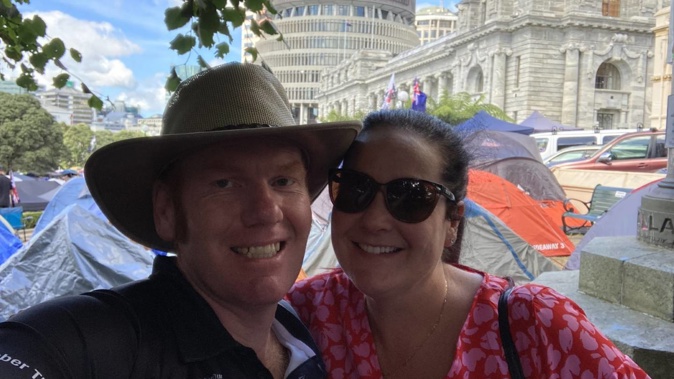
New Zealanders watched in shock as a protest on Parliament grounds descended into violence when police brought the 23-day occupation to an end. More than two weeks on, three people who say they were in Wellington to take a stand against vaccine mandates, open up about their time at the protest which they say was hijacked by "thugs" at the end.
Brendan Shefford, real estate agency licensee, Christchurch
The two days he spent at the protest on Parliament's lawn were the best of his life, Brendan Shefford says.
The Christchurch real estate agency licensee flew to Wellington with his wife, daughter and son – aged 11 and 13 – for the second weekend of the protest.
They stayed in a hotel and visited the protest site over two days, speaking with other protesters and hearing their stories.
He didn't understand why some people thought children shouldn't be there.
"It wasn't a place where I took the kids and as soon as I got there thought, 's***, we shouldn't have the kids ... we felt safe the whole time."
His children were "quite moved" by the experience of hearing other people's stories, and became upset when they watched news coverage of the protest the night after their visit.
"They were saying, 'Mum and dad, it wasn't even like that there'."
The family's first sight on arriving in the protest area was a man sweeping a path, Shefford said.
"This is two days after listening to the news, and various websites, going 'they're shitting on the grass and living in squalor'.
"It was actually one of the tidiest setups I've seen."
Footage online showed people being challenged for wearing masks, but he didn't witness that, or any abuse, Shefford said.
Instead, he saw neighbours opening homes for showers and laundry.
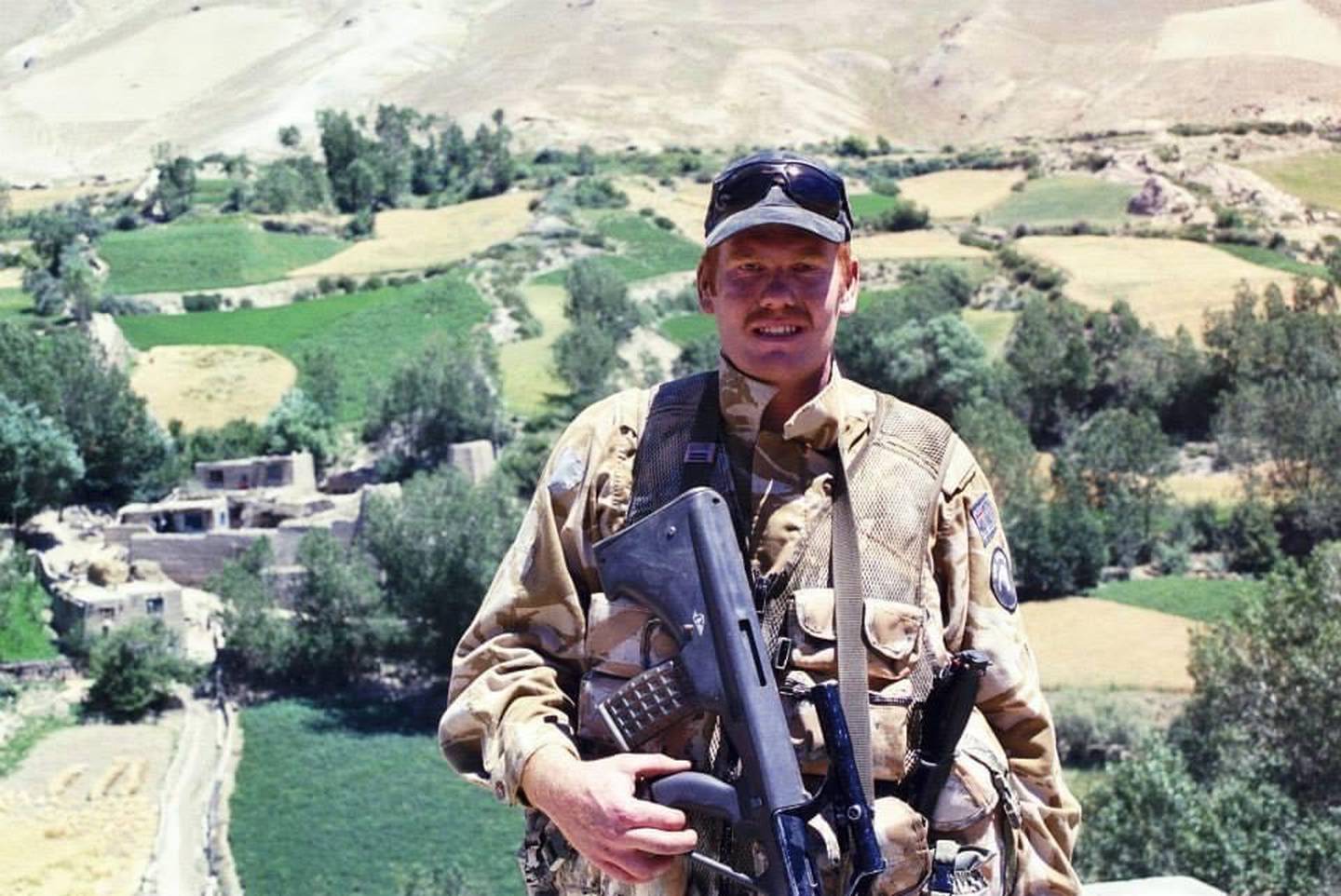
Brendan Shefford, pictured during his time in the New Zealand Army, which included a period serving in Afghanistan. Photo / Supplied
With eight years in the army, including a stint in Afghanistan, he'd received many vaccinations, but didn't want to say if he'd been vaccinated against Covid-19.
His beef was with vaccine mandates. "It's wrong people are losing jobs because of a personal decision."
Vaccination was the Government's "only answer to everything", Shefford said.
"They should've been saying at the start, 'If you're fat, you need to go running and lose some weight and you need to get fit … [so] if you get this disease the better chance you've got'."
Cutting alcohol and improving diet should also have been promoted.
"The Government had a one-off opportunity to address that to the people, but they chose not to."
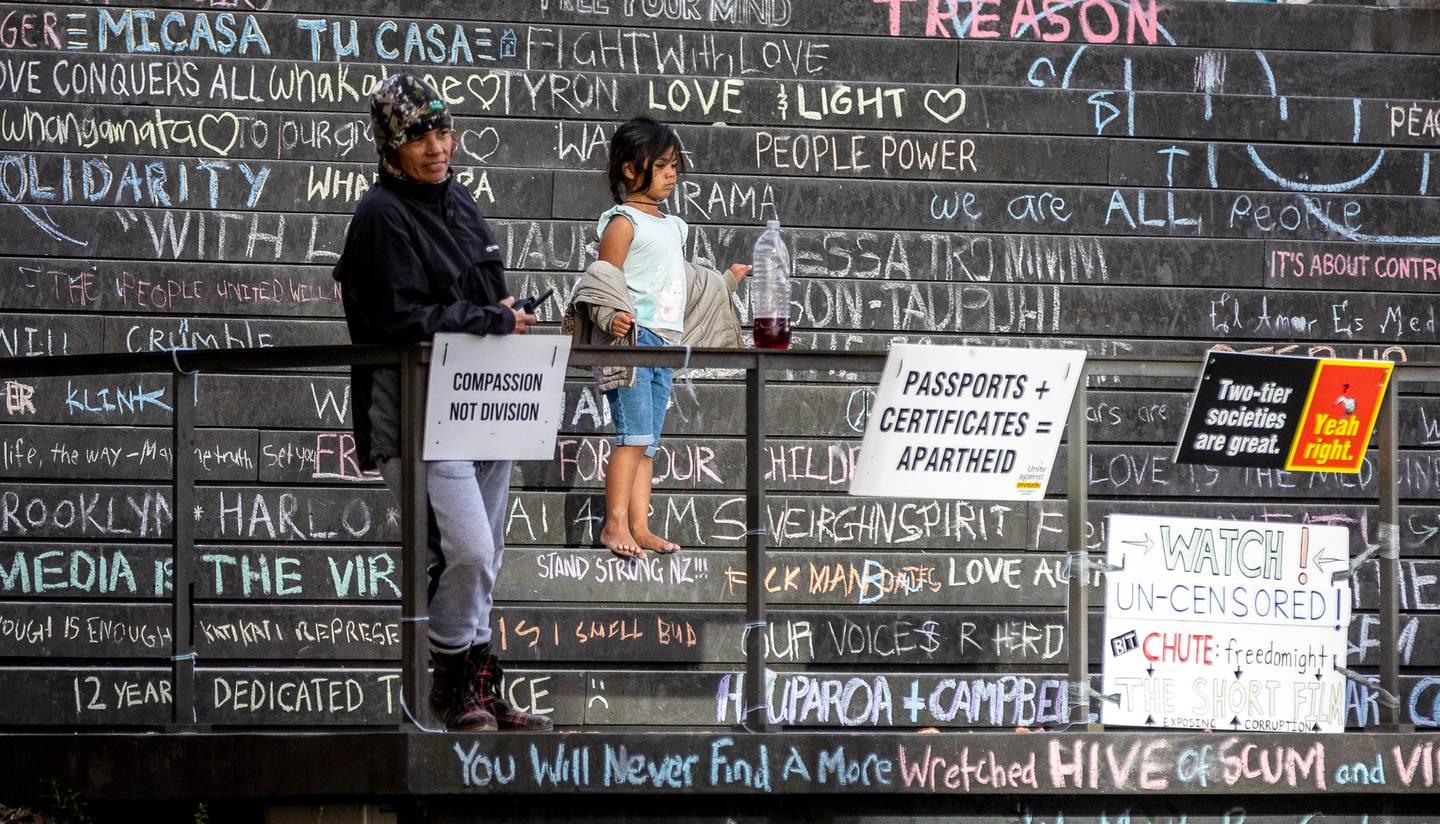
People from around the country came to Parliament last month to share their views on vaccination mandates, and a number of other concerns and grievances. Photo / Mike Scott
He felt for the police commissioner, as Andrew Coster had said he wanted a non-violent end, and he thought police did a good job on the final morning.
But the final, violent hours of the protest were the fault of the police, Prime Minister Jacinda Ardern, and "thugs" showing up who he believed weren't connected to the original protest – because they were wearing masks, which protesters did not.
Asked how he could be sure no protesters were involved when some had earlier shared violent rhetoric towards politicians and journalists, Shefford agreed he couldn't.
But he believed those acting violently on the final day were opportunists.
"How many people turned up at the end because they thought, 'Oh sweet, here's an opportunity to rumble with the police?'"
Anahera Worthington, midwife, Taranaki
The end of the protest was traumatic, Anahera Worthington says.
But the 23 days that preceded it were also "potentially the richest" days of her life, the Taranaki midwife said.
Worthington, who is also known by the first name Angela, is unvaccinated and hasn't worked since Covid-19 vaccine mandates were introduced for health workers last year.
She camped in a tent at Parliament all but two days of the occupation, with her adult daughter and mother also on-site, and feels traumatised by its end.
"The psychological tactics being employed by police, particularly in the last 10 days, were pretty nerve-wracking. Being kept up at night, not knowing what was going on."
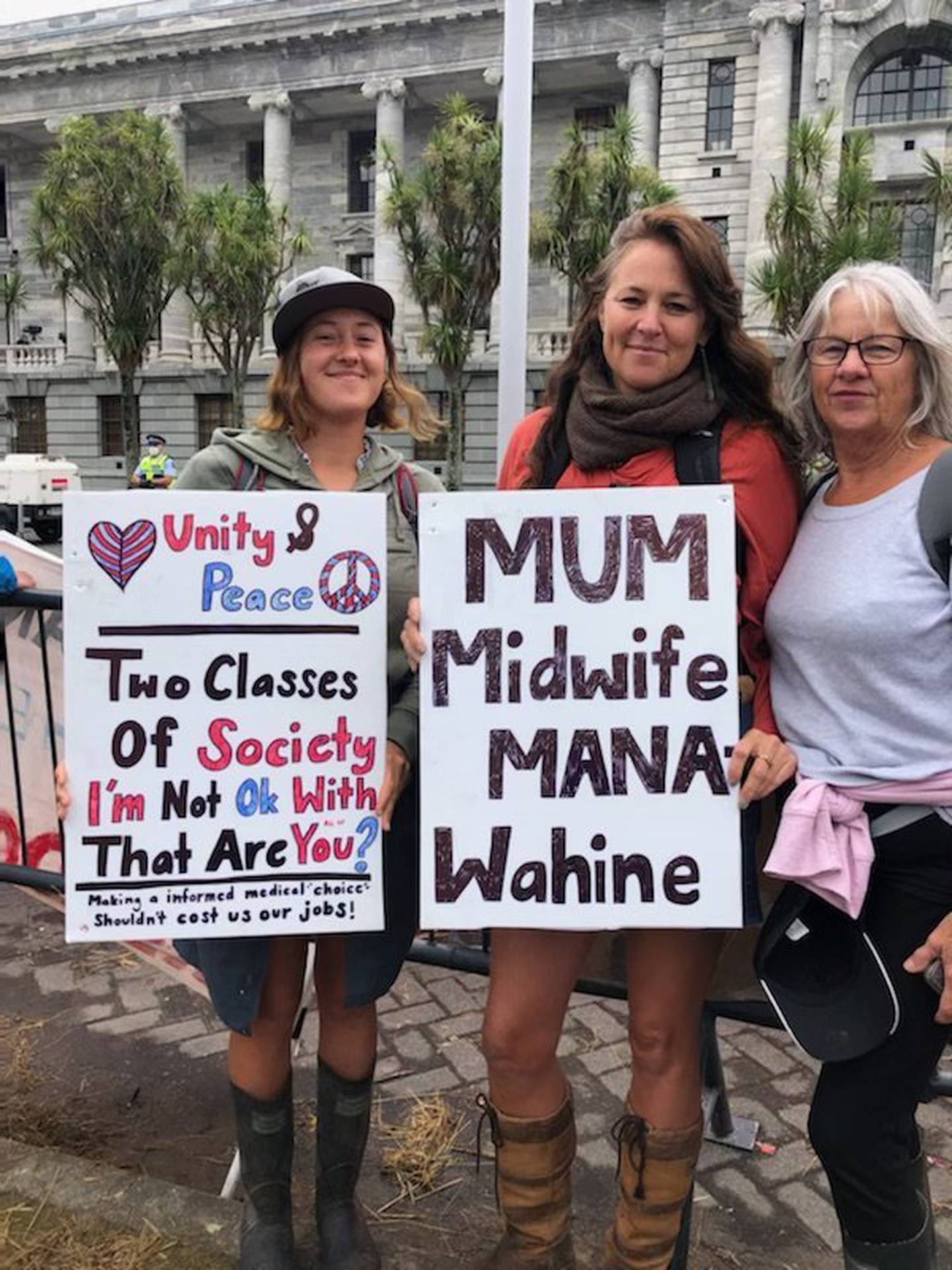
Anahera Worthington, centre, pictured with daughter Willow Worthington, left, and mother Helen Rogers, was on-site for almost the entire 23-day protest at Parliament. Photo / Supplied
As the situation was escalating on the final afternoon, she began helping people leave.
The last person she helped was an 84-year-old woman who "looks like my grandma".
"I asked her why she was there, and she said she doesn't believe the Government should be forcing people to make choices about their bodies."
Those final moments were horrific, Worthington said.
"The police were starting to come down and lobbing tear gas into groups of people, including children and old people.
"This isn't New Zealand. The fact I had to assist an elderly woman away from that is disgusting and shocking, and that's the stuff that nobody really got to see that day."
Tear gas wasn't used by police during the operation to clear blocked roads and restore order in the areas around Parliament affected by protest activity, a police spokeswoman told the Herald.
Pepper spray was used by police officers when necessary to prevent harm to themselves or others in the area, the spokeswoman said.
Public safety was the number one priority of police throughout the protest, including on the final day, when officers were confronted with violent resistance, she said.
"Throughout the day we urged those who did not wish to be caught up in the operation to go home, and our staff would assist people to safely depart the protest area."
Meanwhile, Worthington said she didn't want to say why she wasn't vaccinated.
But she was against the mandates because they went against body autonomy, a key part of the midwifery ethos, she said.
"I went to Wellington because I'm sick of not feeling heard."
She was also "over the nonsensical rules of all of this [Covid-19 response]."
A negative rapid antigen test allowed her to take a flight, but not work.
And, last week, Covid-19 positive health workers were told they could return to work, under certain conditions.
"It's this one minute, [then] it's not the next," the mother-of-four said.
"There are communities that once loved each other that now hate each other."
The minority of people at the protest who weren't peaceful reflected the fact it was a snapshot of society, including those who'd suffered "huge generational trauma" and been deprived of opportunities.
"The difference was that in our tiny lives behind fences on our own properties we get to ignore all that, and in that village – yes there were moments of outrage, anger and the odd spat – and those people had the opportunity for others to come around them, and often de-escalate and talk and hug.
"I saw more mental health improvement in 23 days of that village than I've seen in a career of midwifery."
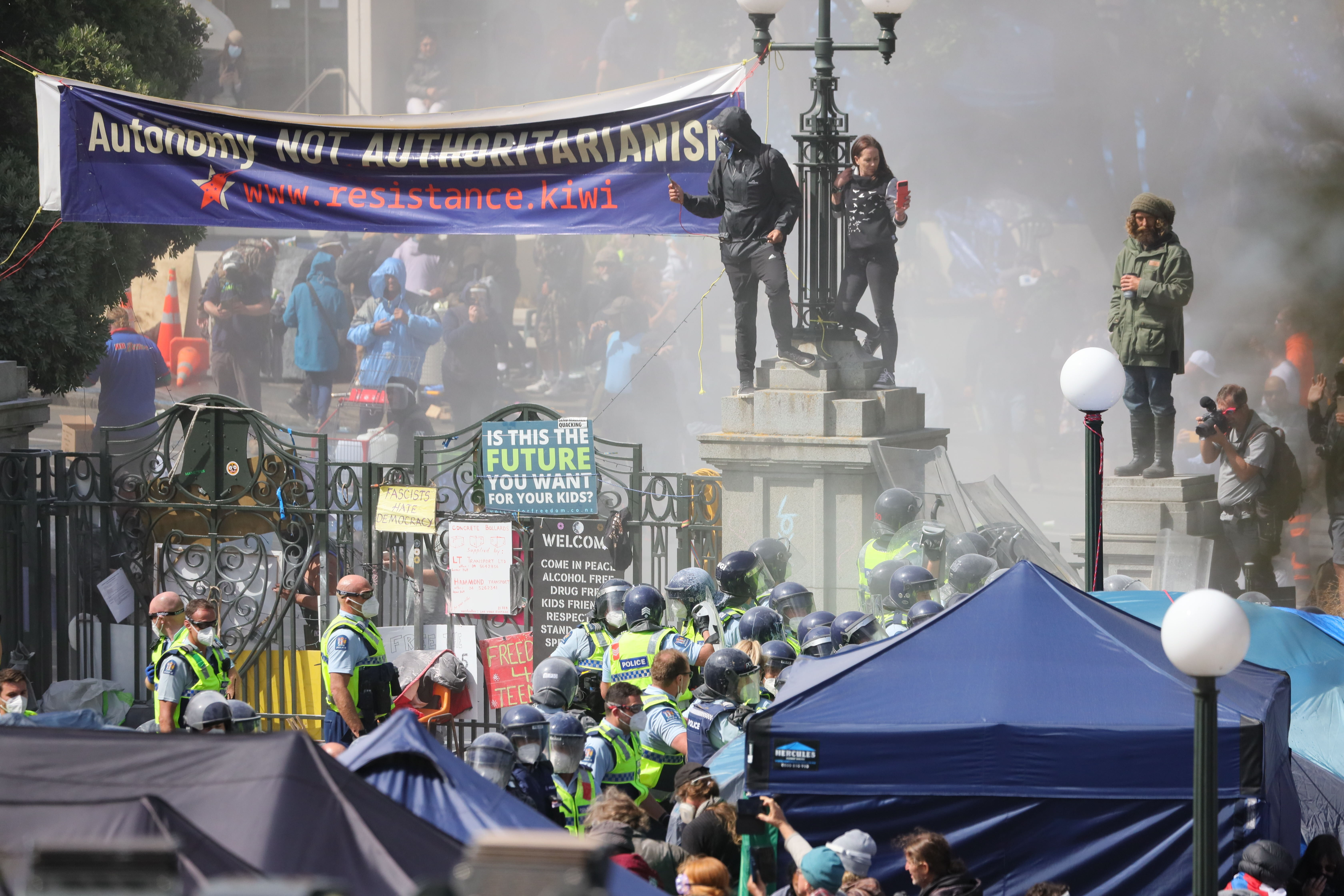
Police and protesters pictured during the operation to clear protesters from Parliament after a 23-day occupation. Violent scenes on the day shocked many. Photo / Mike Scott
She believed people arriving at the end "incited most of that violence against the police", Worthington said.
Jacinda Ardern also shared some blame for not speaking with protesters – and it was a "cop-out" for the Prime Minister to cite threats of violence for her decision.
"The media and the Prime Minister chose to put all the focus on what, probably, 1 per cent of the population in there, and ignore the 99 per cent."
Rob Morrison, health sector contract project and programme manager, Wellington
Protesting on Parliament grounds was a way to stand with family and friends negatively impacted by vaccination mandates and passes, Wellington man Rob Morrison says.
He also believed there'd been "zero dialogue" about alternatives to the Pfizer vaccination, the impact of mandates and passes on the public and "why reasonable people are making the decision to not get the jab".
"I believe the harm created by the mandates outweighs the harm created by Covid", Morrison said, citing High Court justice Francis Cooke's decision last month that ordering frontline police and defence staff be vaccinated or face losing their job wasn't a "reasonably justified" breach of the Bill of Rights.
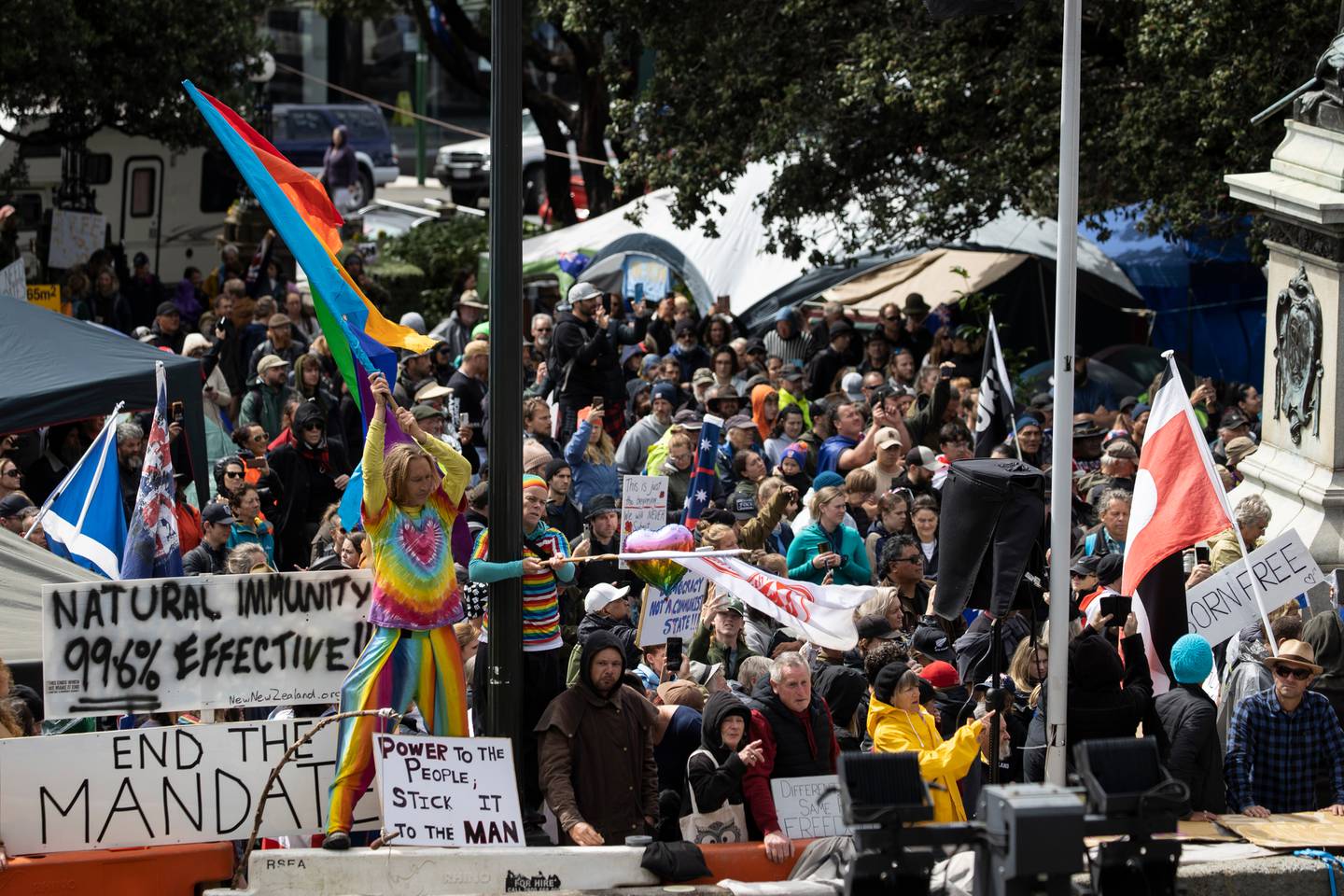
The change from "angst and frustration" in the first two days of the protest to a "more peaceful and inclusive tone" was welcome, anti-mandate protester Rob Morrison says. Photo / George Heard
Morrison didn't want to say if he'd been vaccinated against Covid-19.
As he lived in Wellington, he visited the protest site every second day, looking for jobs to do to support those on site permanently.
He took his children, aged 13 and 16, to the site often, so they could see for themselves what was going on.
After the initial "angst and frustration" demonstrated in the first two days of the protest, the change to a more peaceful and inclusive tone was welcome, Morrison said.
"Given the pain, segregation and exclusion the protesters have experienced over the previous six to eight months, it was amazing to see them organise such a beautiful, joyful, inclusive and peaceful event – excluding the end, when the police decided to get involved."
02 March 2022. Violent scenes erupted outside Parliament as police moved in to clear the occupation that has been disrupting the capital for over three weeks. Video / NZ Herald
He was "pretty disappointed" the protest ended without meaningful dialogue between those representing the protesters and those in Parliament.
"It showed a lack of empathy from our politicians. They demonstrated that they are disconnected from their people.
"I'm also disappointed that the peaceful protest was hijacked by people who wanted a fight."
The rioters didn't represent the majority of protesters, Morrison said.
"I think it is important to separate the actions of protestors from the actions of rioters. [And] the approach the police took definitely antagonised the rioters."
- by Cherie Howie, NZ Herald
Take your Radio, Podcasts and Music with you









